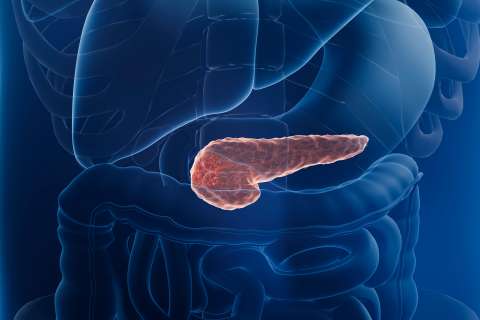In the mid-2000s, when a team of UCLA Health Jonsson Comprehensive Cancer Center researchers led by Dennis Slamon, MD, PhD, and Richard Finn, MD, began investigating a compound developed by Pfizer called PD-0332991, few people believed it would amount to much. Today, that drug, now known as palbociclib, marketed under the name Ibrance, has transformed the treatment of estrogen–receptor positive (ER+) and HER2–negative (HER2-) breast cancer, helping hundreds of thousands of patients worldwide.
Their work not only led to the approval of palbociclib to be used in combination with hormonal therapy, but also opened the door to an entirely new class of therapies known as CDK4/6 inhibitors. These drugs, which slow cancer cell division, have since become the standard of care for advanced ER+/HER2- breast cancer and are now showing promise in early-stage disease (at initial diagnosis).
To commemorate the 10-year anniversary of the FDA approval of palbociclib, which was the first CDK4/6 treatment to be approved for breast cancer treatment, Dr. Slamon, director of clinical and translational research at the Jonsson Cancer Center and chief of hematology/oncology at the David Geffen School of Medicine at UCLA, and Dr. Finn, professor of medicine, director of the signal transduction and therapeutics program and medical director of the clinical research unit at the Jonsson Cancer Center, reflect on how it all started, the impact of their work, and what’s next in the fight against breast cancer.
First, how does palbociclib work?
Dr. Finn: Palbociclib is an oral drug that inhibits two proteins, CDK4 and CDK6, which regulate cell division. In cancer, cell division is uncontrolled. Palbociclib helps slow this process, and when combined with endocrine therapy, the two work together to halt tumor growth.
How did the team first identify palbociclib as a promising drug candidate?
Dr. Slamon: Our goal was to find new targeted therapies using our research platform, which screens drugs against a diverse panel of cancer cell lines. Pfizer had a CDK4/6 inhibitor in their pipeline for years, but it wasn’t a drug they were actively pursuing for breast cancer. We tested several compounds from their portfolio, and this particular inhibitor, PD-0332991, showed a strong effect in our breast cancer panel.
However, the key discovery came from the way we conducted our assay. Unlike traditional, quick-read tests that evaluate drug effectiveness in just two days, we used a longer assay. That made a huge difference. Some breast cancer cells, particularly ER+/HER2-cells, grow more slowly than other types, like triple-negative or HER2-positive breast cancers. Pfizer’s initial short-term assay didn’t show any effect, so they had dismissed it. But it's only because they didn't look over a long enough time period. Our longer assay revealed that the CDK4/6 inhibitor was highly effective against ER+/HER2- breast cancer breast cancer, which accounts for nearly 70% of all breast cancers cases globally, and worked synergistically with endocrine therapy.
What were the next steps after you identified the drug’s potential?
Dr. Slamon: Once we saw the promising results in the lab, we approached Pfizer for permission to conduct a Phase 1 clinical trial at UCLA. We treated 12 patients, and four had significant responses, including one woman who has now been doing well for nearly 15 years.
Dr. Finn: Following that success, we proposed a Phase 2 trial, called PALOMA-1, through our Translational Research in Oncology (TRIO) network, which allowed us to rapidly enroll enough patients to validate the findings. We ran a trial with 164 patients and, remarkably, doubled the progression-free survival from 10 months to 20 months. That was the largest improvement in progression-free survival seen in HR-positive breast cancer since hormonal therapy was introduced in the 1970s. That type of result is not often seen in cancer medicine. Because of this, the FDA granted palbociclib breakthrough designation, and on February 3, 2015, it was approved for frontline treatment approach for postmenopausal women with ER+/HER2- metastatic breast cancer.
Was there skepticism about palbociclib’s role in breast cancer treatment?
Dr. Slamon: There was no skepticism about whether the drug worked, the data were clear. The real debate was about when to use it. Some believed that metastatic ER+/HER2- breast cancer breast cancer should be treated with hormonal therapy alone first, reserving palbociclib for later use if the cancer progressed. Critics argued that hormonal therapy is inexpensive and effective, so why introduce an expensive new drug upfront?
However, our data showed that adding palbociclib at the start of treatment significantly improved outcomes. Over time, the evidence became so strong that it changed treatment guidelines, making CDK4/6 inhibitors the standard first-line therapy for this type of breast cancer.
Dr. Finn: Before palbociclib, patients received anti-estrogen therapy alone, but now, CDK4/6 inhibitors are the foundation of treatment. The consistency of data across multiple large, global Phase 3 studies—not just with palbociclib but also with the other CDK4/6 inhibitors—demonstrated that these drugs provided significant and reliable benefits.
What’s next for CDK4/6 inhibitors?
Dr. Finn: Research is ongoing to better understand how cancer cells evade CDK 4/6 inhibition. We’re exploring combination treatments that include endocrine therapy plus additional targeted therapies, as well as next-generation CDK inhibitors that may delay or overcome resistance. This remains an active area of investigation.
What excites you most about the future of cancer treatment?
Dr. Slamon: The key lesson from palbociclib and other targeted therapies is that we need to find the right drug for the right patient—matching molecular targets with effective treatments. The future of oncology is all about precision medicine, identifying cancer’s specific vulnerabilities and developing treatments that attack only those weak points while sparing healthy cells.
Our lab continues to apply this approach to other cancers, including pancreatic and ovarian cancer. The goal is to keep pushing forward, discovering new targets and translating those discoveries into real treatments that improve patients’ lives.
Dr. Finn: Every advance builds on past discoveries. No one necessarily predicted the success of palbociclib, but it changed breast cancer treatment. The same will happen again. There’s so much research happening, and something out there will lead to another breakthrough. The future of targeted therapy is bright, and I’m excited to see what comes next.





